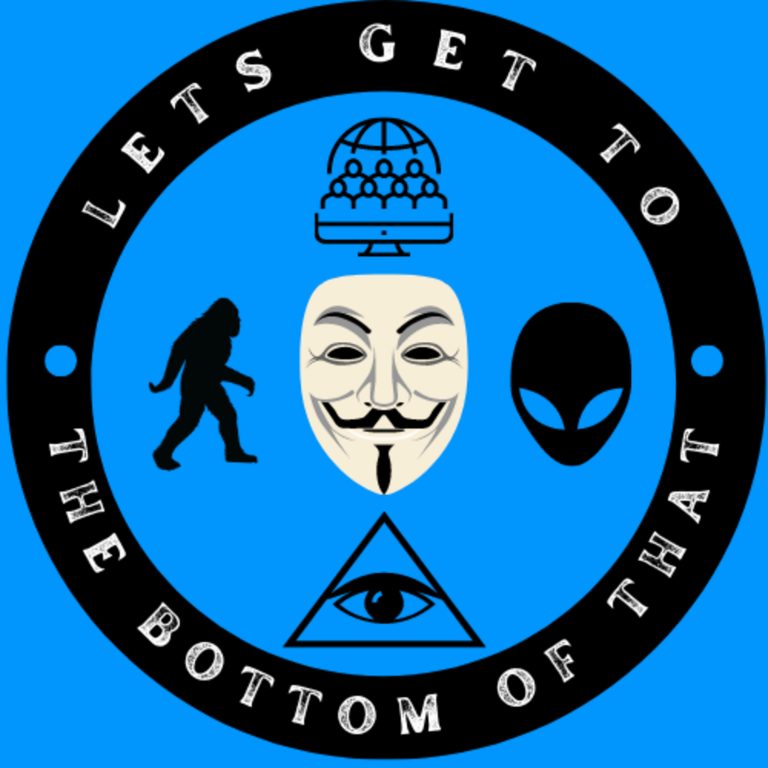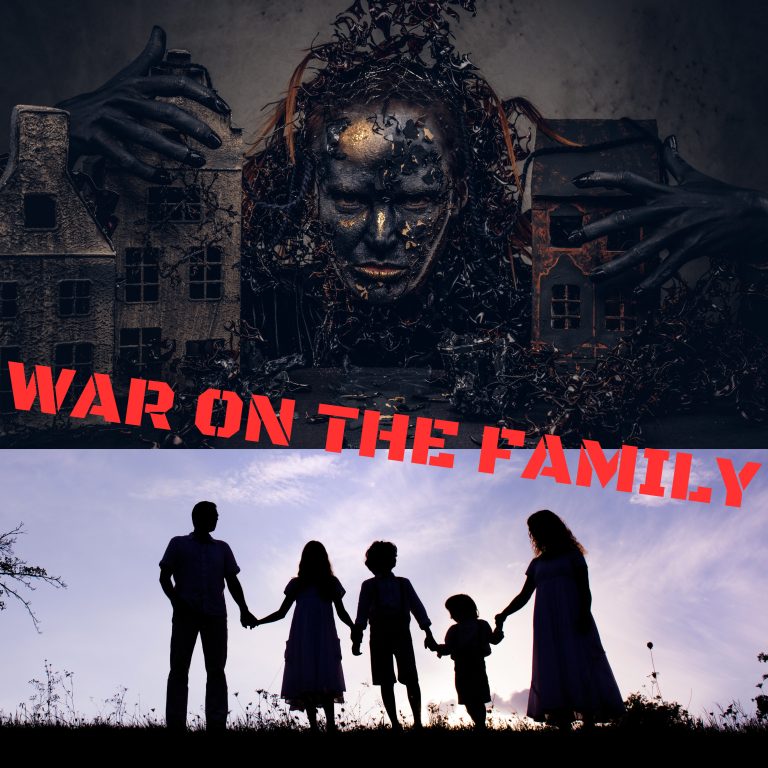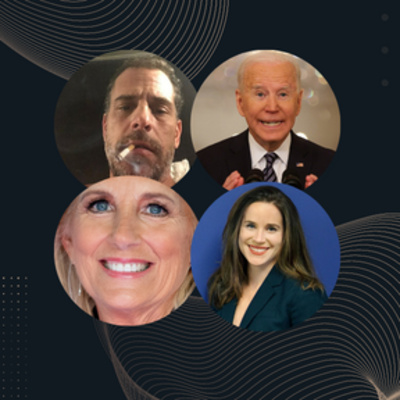
This show will get to the bottom of all those questions you need answers to. Each week we will cover a topic that has been left out in the public square unattended and covered with questions from the “official story” You will be able to determine on this show if the topic has been deemed a “Conspiracy” or a “Conspiracy Theory”.
The family is the centerpiece of any functioning society. Unfortunately, families in the U.S. have been under attack and suffered from dysfunction for decades. Divorce, fatherlessness, abuse, and homosexual marriage are among the primary culprits. I believe God wants to bring healing to marriages and relationships, ending this chaos and providing a solid moral foundation for our children.
Today we have a special in-studio guest Pastor Troy Bailey as he gives his perspective on this topic.

To find out why there is a war on the family we must first look at where the family fits into a culture and society.
Isaiah 9:7 – For to us a child is born, to us a son is given, and the government will be on his shoulders. And he will be called Wonderful Counselor, Mighty God, Everlasting Father, Prince of Peace. Of the increase of his government and peace, there will be no end.
Psalm 2:7-8 – I will proclaim the decree spoken to Me by the LORD: “You are My Son; today I have become Your Father. Ask Me, and I will make the nations Your inheritance, the ends of the earth Your possession.

Matthew 28:19-20 – Therefore go and make disciples of all nations, baptizing them in the name of the Father and of the Son and of the Holy Spirit, and teaching them to obey everything I have commanded you. And surely I am with you always, to the very end of the age.”
Jesus said to make disciples of nations, what makes up a nation? People, but specifically people make up culture and society and whatever that looks like will determine what a nation looks like. So if we take a closer look at what makes any nation we can find out how to influence the culture and society and therefore make disciples of the nations.
The 7 Mountain Mandate | 7 Spheres of Influence
Religion & Faith
In the West, Christianity is under attack and the concept of God is being rejected more than ever. I believe that the Church must revive its previously strong influence on Western society, expanding the Kingdom of God by spreading knowledge of the love and Gospel of Jesus Christ. The Church is tasked with expanding His message through ministerial efforts in our nation and across the world.
Family
The family is the centerpiece of any functioning society. Unfortunately, families in the U.S. have been under attack and suffered from dysfunction for decades. Divorce, fatherlessness, abuse, and homosexual marriage are among the primary culprits. I believe God wants to bring healing to marriages and relationships, ending this chaos and providing a solid moral foundation for our children.
Education
Once, our education system unapologetically incorporated biblical principles and prayer into students’ daily routines. Now, our children are being indoctrinated with liberal ideologies, atheistic teaching, and postmodern principles in our public schools and even in Christian institutions. We seek to restore biblical truth and Godly morality into our country’s failing educational system.
Government & Law
A nation’s moral condition is often reflected in its political leaders. Unfortunately, we have seen a steady increase in political corruption, as well as a steady erosion of the link between our government and legal system and the Christian values upon which our country was founded. Our goal is to educate and equip citizens so they can effectively influence government at all levels with Truth and righteousness.
Media, News & Commentary
The Media, News & Commentary mountain includes sources such as TV, radio, newspapers, online news, and, of course, the hugely influential social media sites and blogs on the Internet. To bring transformation to this enormous mountain, we shall speak the truth from a Biblical perspective to combat the sea of disinformation spread by liberal elite outlets and other mainstream media sources.
Arts & Entertainment
Music, movies, television, and social media wield enormous influence on our youth, and the dark forces of sex, drugs, alcohol, and immorality that permeate these fields are spreading dangerous messages to our children. The body of Christ is in desperate need of righteous people who take their talents into these fields and are unafraid of using their platform to further His greater purposes.
Business & Economics
The free market system is a God-given gift, enabling us to build wealth through enterprise, creativity, and effort. We believe in limiting the role of government in our nation’s business practices and allowing the free markets to run their course. We also espouse prosperity with a purpose, calling upon those who manage businesses to lead with integrity, honesty, and by biblical principles.
Matthew 16:18 And I tell you, you are Peter, and on this rock, I will build my church, and the gates of hell shall not prevail against it.
Church = Ekklesia – This is a governing body, Jesus used language that was understood in his time, Caeser had an Ekklesia which was a governing body of people around him for legal counsel and direction, so when Jesus mentioned that he was going to build his Ekklesia Peter and the disciples knew what he was referring to.
The gates of hell are located at the top of these institutions that make up a nation. Whoever controls these spheres of influence will control the entire nation.
So today we are talking about just one of these spheres of influence and perhaps one of the most important out of all of these because if this one falls they all will fall.
The War on the Family is on full display in our culture today. In any functional society, the family is the “building block” of the community. Throughout the Bible, you will find family examples that portray how we ought to live our lives today. God desires that men, women, and children within a family be united as one in His love. After all, He is the ultimate Father (Romans 8:14-17).
The families of the United States have been under constant and prolonged attack. Today, the assailants are fatherlessness, divorce (50% rate in secular and Christian marriages), abuse, homosexual marriage, pornography, and other negative influences that have brought great dysfunction to American life. God is calling fathers and mothers (both spiritual and biological) to bring order to the chaos that the enemy has unleashed against families in America. He also wants to bring healing to marriages and relationships within families in order to maintain a moral foundation for children in the future to stand upon.
The family domain is the one that you have the most authority over. Because family if put first will shape all the other 6 domains or spheres of influence.
Men are charged with the responsibility of being the primary initiator within the family, and women are designed to be supporters of the man to fulfill that role, the women should be encouraging and edifying the man to maturity stepping into what he’s called to be when the man steps into what he is called to be he creates a greater space for the women to be what she’s called to be. And this becomes a model for children to witness firsthand how to successfully navigate the family, which children can’t get with single-parent homes.
The largest attack on the family today is happening in the West with males and masculinity. Remember this is a battle at the gates of hell which is at the top of the Family sphere of influence and the enemy always will try to destroy God’s image.
So you have this void of Men being fathers, protectors, providers, and image bearers of God.
That is why we have a push on the children to engage in over-sexualized activities and confusion from the Alphabet community, as they reach boys younger they will grow up and not fulfill the role of purpose that was placed into them before they were born therefore the Family will decay and all of the other spheres will be lost to the enemy as well.
The Enemy knows that we are busy trying to reach lost souls by getting people into a church meeting, but we forget to engage in culture and that is where the gates of hell are at not at the church building. All of these LGBTQ normalizing sexual behavior is a branch of pornography and they want to hook you early because the brain is hit with dopamine hits and essentially destroys the development of a child, and this is probably done as part of a eugenics movement because if you are able to over sexualize children very early the chances of them having successful marriages and relationships in the future goes down dramatically. If you are a eugenicist you are trying to get people not to reproduce and have babies, if you are a Bill Gates, Jeffery Epstein, or a Rockafella let’s make sure TikTok or Instagram every time they are in the suggested feature lets make sure we show them Boobs Butts and bellies and show them the most suggested deprived sexual behavior possible so we can rot their mind, ruin their ability to co-bond while at the same time having very little impulse control, that is essentially what a lot of young children are going through yes its big tech, but at the end of the day parents why are putting a phone with access to this stuff in your child’s hands?
In order to win the war on the family you need strong local churches that create strong local communities that will put a priority on showing what God’s word teaches on how to model a strong family unit, once this is in place the families will need to be trained on how to engage culture as a family and take ground in each one of these spheres of influence we have to storm the gates of hell and as promised by our Savior the gates cannot and will not withstand the attack of a church with purpose.
“ Men Without Chests”
“Religion that God our Father accepts as pure and faultless is this: to look after orphans and widows in their distress and to keep oneself from being polluted by the world.”James 1:27
“The Abolition of Man” is a book written by C.S. Lewis, a renowned British author, theologian, and literary scholar. It was first published in 1943 and is a work of philosophical reflection that addresses the decline of objective values and the potential consequences of a society that neglects moral principles.
⁃ **Themes and Content:**
⁃ The book consists of three essays, which were originally presented as a series of lectures at the University of Durham. In these essays, Lewis critiques the reductionist tendencies of modern education and science that seek to debunk traditional values and ethical norms. He argues that such reductionism can lead to the devaluation of human dignity and virtue, ultimately resulting in what he terms the “abolition of man.”
⁃ Lewis uses the term “Tao” to refer to a set of universal, objective moral principles that are shared across cultures and time periods. He contends that this moral foundation is essential for human well-being and the preservation of a just society. He warns against the danger of allowing modern science and technology to dictate moral values, rather than being guided by these inherent ethical principles.
⁃ **Key Concepts:**
⁃ – **Men Without Chests:** Lewis employs the metaphor of “men without chests” to describe individuals who lack the moral and emotional faculties necessary for making virtuous decisions. He argues that modern education often neglects the cultivation of these faculties, leading to a society devoid of genuine virtue.
⁃ – **Subjectivism:** Lewis criticizes the prevalence of subjectivism, which denies the existence of objective moral truths. He suggests that without a shared moral framework, moral discourse becomes meaningless, leading to a loss of ethical guidance.
⁃ – **The Green Book:** Lewis uses the term “The Green Book” to represent a fictional textbook that exemplifies the kind of value-neutral, reductionist education he criticizes. This book purports to teach about moral values while denying their objective reality, reducing them to mere expressions of personal sentiment.
1. “We make men without chests and expect from them virtue and enterprise. We laugh at honor and are shocked to find traitors in our midst.”
2. “For the power of Man to make himself what he pleases means, as we have seen, the power of some men to make other men what they please.”
3. “There is something which unites magic and applied science while separating both from the wisdom of earlier ages.”
4. “The Tao, which others may call Natural Law or Traditional Morality or the First Principles of Practical Reason or the First Platitudes, is not one among a series of possible systems of value.”
5. “In a sort of ghastly simplicity, we remove the organ and demand the function. We make men without hearts and expect of them virtue and enterprise.”
Expounding on the first quote
The first quote from “The Abolition of Man” by C.S. Lewis reflects his concern about the state of education and moral values in society. Lewis argues that modern education, especially when it lacks a strong foundation in traditional virtues and values, leads to a generation of individuals “without chests.”
The metaphor of “men without chests” is used to illustrate that people are being educated in a way that neglects the development of their moral and emotional faculties. In traditional language, the chest was often associated with emotions, feelings, and moral convictions. By dismissing or downplaying the importance of cultivating these qualities, Lewis suggests that society is creating individuals who lack the capacity for genuine virtue and integrity.
He goes on to express his concern that such individuals, lacking a strong moral compass, will fail to uphold honorable ideals and principles. This, in turn, leads to a society in which people scoff at concepts like honor and ethics while being surprised and dismayed when they encounter betrayal and unethical behavior.
Overall, the critique is of an education system that neglects the cultivation of values and virtues, resulting in individuals who lack the moral foundation necessary for a just and virtuous society. Lewis argues that a balanced education should incorporate not only intellectual knowledge but also the development of character and a strong sense of ethics.
“The Abolition of Man” provides various examples and arguments about how modern society neglects the development of morals and values.
1. **Advertising and Manipulation of Desires:** Lewis discusses how modern advertising and consumer culture shape people’s desires and values. He criticizes the manipulation of emotions and desires through advertising, which he believes can lead to a detachment from genuine moral principles. He argues that when people’s desires are manufactured rather than cultivated through authentic moral reflection, their capacity for making ethical decisions is compromised.
2. **Subjectivism in Education:** Lewis points out that modern education often promotes subjectivism, which is the idea that moral judgments are entirely subjective and relative. He argues that by teaching students that moral values are simply personal preferences, we undermine the concept of objective morality and fail to provide a solid foundation for ethical decision-making.
3. **Reductionism:** The book discusses how scientific materialism and reductionism tend to reduce human experience, including morality, to mere physical processes. This reductionist perspective dismisses the existence of objective moral truths and values, leaving individuals with a sense of moral nihilism.
4. **Dismissal of Tradition:** Lewis criticizes the tendency to dismiss traditional moral values as outdated and irrelevant. He argues that there is wisdom in these traditions that has been developed over generations, and ignoring them can lead to a loss of cultural and moral heritage.
5. **Technology and Utilitarianism:** Lewis expresses concern about the ethical implications of technology, especially when driven solely by utilitarian considerations. When technology is divorced from a moral framework, it can lead to harmful consequences, as it prioritizes efficiency and convenience over ethical considerations.
Neglecting the development of moral values and ethics leads to a society that lacks a strong moral foundation. He believes that this “abolition of man,” as he terms it, has serious consequences for human dignity, virtue, and the well-being of society as a whole.
Quotes from “The Abolition of Man” by C.S. Lewis that highlight the themes of neglecting the development of morals in society:
1. “For the power of Man to make himself what he pleases means, as we have seen, the power of some men to make other men what they please.”
2. “And all the time — such is the tragi-comedy of our situation — we continue to clamor for those very qualities we are rendering impossible. You can hardly open a periodical without coming across the statement that what our civilization needs is more ‘drive’, or dynamism, or self-sacrifice, or ‘creativity’.”
3. “St Augustine defines virtue as ordo amoris, the ordinate condition of the affections in which every object is accorded that kind of degree of love which is appropriate to it. Aristotle says that the aim of education is to make the pupil like and dislike what he ought.”
These quotes provide insight into a society that undermines its own moral foundation while simultaneously desiring the virtues that result from it.
Examples In modern Society
1. **Consumer Culture and Materialism:** Modern consumer culture often encourages individuals to pursue material wealth and immediate gratification, potentially at the expense of deeper moral values. This can lead to a focus on individual desires rather than a consideration of ethical principles.
2. **Relativism in Education:** Some educational approaches promote moral relativism, suggesting that morality is purely a matter of personal opinion. This can prevent students from engaging with objective ethical principles and critical moral reasoning.
3. **Ethical Concerns in Technology:** The rapid advancement of technology, while providing numerous benefits, can also lead to ethical dilemmas. For example, the development of artificial intelligence raises questions about the moral implications of creating entities with decision-making capabilities.
4. **Media and Celebrity Culture:** The influence of media and celebrity culture can sometimes prioritize superficial values and behaviors, overshadowing deeper virtues and ethical considerations.
5. **Utilitarian Ethics in Policy:** Decision-making driven solely by utilitarian considerations, such as maximizing efficiency or economic gain, can sometimes neglect the broader ethical implications of policies and actions.
6. **Education Focused on Test Scores:** An education system overly focused on standardized test scores might prioritize rote memorization over fostering critical thinking, empathy, and moral development.
7. **Loss of Tradition:** Disregarding cultural and historical traditions can disconnect individuals from valuable sources of moral wisdom and guidance.
8. **Erosion of Respect and Civility:** A lack of emphasis on values like respect, empathy, and civility can lead to a breakdown in interpersonal relationships and societal cohesion.
9. **Biases in Algorithms:** Algorithms and AI systems can perpetuate biases if not designed and monitored ethically, resulting in discriminatory outcomes.
Several biblical scriptures that address the importance of moral development, ethical values, and the impact of neglecting these principles.
1. **Proverbs 22:6:** “Train up a child in the way he should go; even when he is old he will not depart from it.” This verse emphasizes the importance of early moral and ethical training.
2. **Matthew 5:13-16:** “You are the salt of the earth. But if the salt loses its saltiness, how can it be made salty again?… In the same way, let your light shine before others, that they may see your good deeds and glorify your Father in heaven.” This passage emphasizes the role of believers in influencing the world through their moral conduct and good deeds.
3. **Galatians 5:22-23:** “But the fruit of the Spirit is love, joy, peace, forbearance, kindness, goodness, faithfulness, gentleness and self-control. Against such things there is no law.” This passage highlights the virtues that Christians should strive to develop as a result of the indwelling of the Holy Spirit.
4. **Ephesians 6:4:** “Fathers, do not provoke your children to anger, but bring them up in the discipline and instruction of the Lord.” This verse speaks to the responsibility of parents to guide their children in a way that fosters moral and spiritual growth.
5. **Colossians 3:12-14:** “Therefore, as God’s chosen people, holy and dearly loved, clothe yourselves with compassion, kindness, humility, gentleness and patience. Bear with each other and forgive one another if any of you has a grievance against someone. Forgive as the Lord forgave you. And over all these virtues put on love, which binds them all together in perfect unity.” This passage encourages believers to embrace virtues that contribute to harmonious relationships and ethical behavior.
6. **2 Timothy 3:16-17:** “All Scripture is God-breathed and is useful for teaching, rebuking, correcting and training in righteousness, so that the servant of God may be thoroughly equipped for every good work.” This verse emphasizes the role of Scripture in guiding individuals toward moral righteousness and ethical conduct.
7. **James 1:27:** “Religion that God our Father accepts as pure and faultless is this: to look after orphans and widows in their distress and to keep oneself from being polluted by the world.” This verse underscores the importance of compassionate action and maintaining moral purity.
Other Examples in todays Culture
1. **Instant Gratification Culture:** The prevalence of technology and on-demand services can foster an expectation of instant gratification, often at the expense of cultivating virtues like patience, perseverance, and delayed gratification.
2. **Social Media Influences:** The pursuit of likes, followers, and online validation can lead individuals to prioritize external appearances and popularity over authentic character development.
3. **Information Overload:** The constant bombardment of information and news through digital devices can lead to superficial understanding and a lack of in-depth ethical reflection.
4. **Cultural Relativism:** The embrace of cultural relativism, where values are viewed as products of cultural norms rather than objective truths, can lead to a decline in universal ethical standards.
5. **Materialism and Consumerism:** The emphasis on material possessions and the pursuit of wealth can overshadow the importance of virtues like generosity, humility, and contentment.
6. **Political Polarization:** Extreme political divisions can erode respectful discourse and compromise, undermining virtues like empathy and cooperation.
7. **Online Disinhibition:** The anonymity provided by online interactions can lead to a lack of accountability for hurtful or unethical behavior, potentially diminishing virtues like respect and empathy.
8. **Depersonalization:** Technology-mediated interactions can sometimes reduce empathy and human connection, weakening virtues like compassion and understanding.
9. **Career and Academic Pressure:** The pressure to excel in careers and academics can lead to a neglect of character development and ethical considerations in the pursuit of success.
10. **Lack of Face-to-Face Interaction:** Reduced face-to-face interaction can hinder the development of vital interpersonal skills and virtues like active listening and effective communication.
11. **Globalization and Cultural Shifts:** Rapid cultural changes and exposure to diverse value systems can challenge the preservation of traditional moral values.
12. **Ethical Dilemmas in Technology:** Advances in technology, like AI and genetic engineering, can present ethical dilemmas that society is not fully prepared to address.
Combating With Scripture
**Instant Gratification Culture:** In a world that promotes instant gratification, the Bible reminds us of the value of patience and perseverance. Romans 5:3-4 tells us, “Not only that, but we rejoice in our sufferings, knowing that suffering produces endurance, and endurance produces character, and character produces hope.” Our faith teaches us to wait upon the Lord and trust in His timing.
**Social Media Influences:** Proverbs 31:30 reminds us that “Charm is deceitful, and beauty is vain, but a woman who fears the LORD is to be praised.” As we navigate the pressures of social media and the pursuit of validation, we must remember that our true worth comes from being children of God, valued and loved unconditionally.
**Information Overload:** Proverbs 2:6 reminds us that “For the LORD gives wisdom; from his mouth come knowledge and understanding.” Amidst the flood of information, we are called to seek wisdom from God’s Word, allowing it to guide our understanding and discernment in a world filled with noise.
**Cultural Relativism:** In a culture that often embraces relativism, Colossians 2:8 warns us, “See to it that no one takes you captive by philosophy and empty deceit, according to human tradition.” Our foundation lies in the unchanging truth of God’s Word, which provides us with objective moral standards.
**Materialism and Consumerism:** 1 Timothy 6:10 cautions us, “For the love of money is a root of all kinds of evils.” Our faith calls us to find contentment in God’s provision and prioritize eternal treasures over temporal possessions.
**Political Polarization:** Matthew 5:9 encourages us to be peacemakers, saying, “Blessed are the peacemakers, for they shall be called sons of God.” Our role is to promote unity and empathy, reflecting the love and reconciliation modeled by Christ.
**Online Disinhibition:** Ephesians 4:29 guides our online interactions, “Let no corrupting talk come out of your mouths, but only such as is good for building up, as fits the occasion, that it may give grace to those who hear.” Even in the digital world, our speech should be characterized by kindness and respect.
**Depersonalization:** John 13:34-35 reminds us, “A new commandment I give to you, that you love one another: just as I have loved you, you also are to love one another. By this all people will know that you are my disciples, if you have love for one another.” In our interactions, whether online or offline, love and empathy should always shine through.
**Career and Academic Pressure:** Proverbs 16:3 offers guidance, “Commit your work to the LORD, and your plans will be established.” Our pursuits should be aligned with God’s will, focusing not only on excellence but also on virtues like humility and integrity.
**Lack of Face-to-Face Interaction:** Hebrews 10:24-25 encourages us, “And let us consider how to stir up one another to love and good works, not neglecting to meet together, as is the habit of some, but encouraging one another.” While digital communication has its place, personal connections fostered through fellowship are vital for our spiritual growth.
**Globalization and Cultural Shifts:** Romans 12:2 teaches us, “Do not be conformed to this world, but be transformed by the renewal of your mind, that by testing you may discern what is the will of God, what is good and acceptable and perfect.” As cultures shift, our guide remains the unwavering truth of Scripture.


